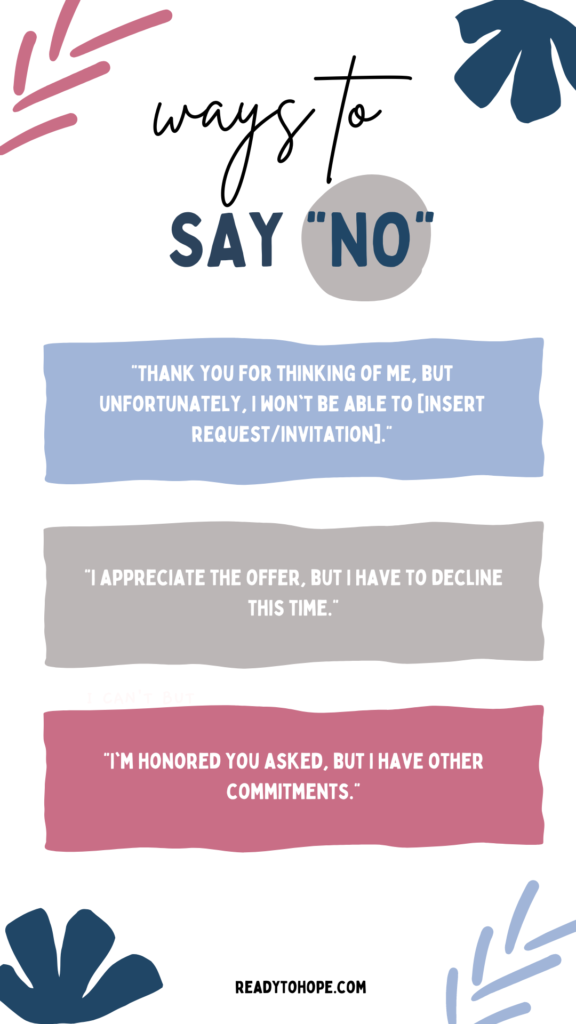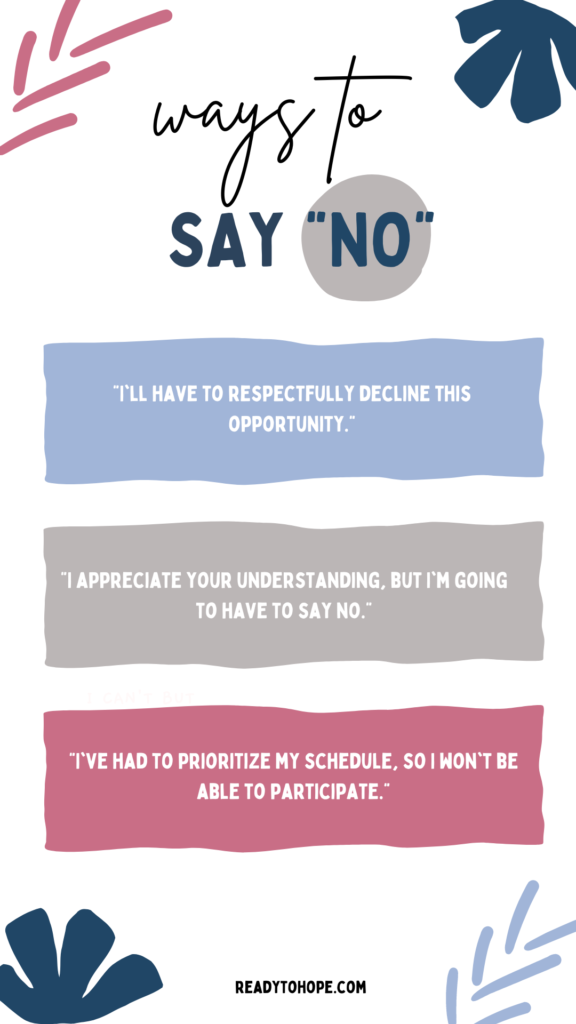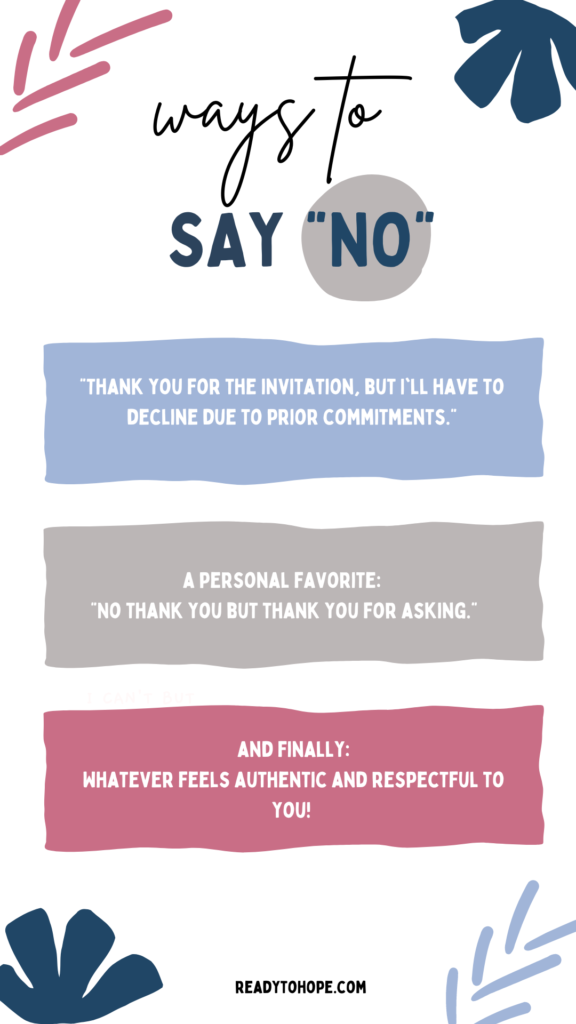Learning to Say No to Protect Your Mental Wellness

In our last post we talked about how to set healthy boundaries, including:
What are the components of healthy boundaries?
What are some examples of healthy boundaries?
And hopefully you now have a solid sense of what it looks like to set healthy boundaries in general and have begun thinking about how to do so in your relationships.
As a follow up, we wanted to talk about saying “no.”

Because here’s the truth: for many of us, saying no is not easy.
There are any number of reasons you (and I) might struggle with saying no.
Do any of these sound familiar?
- “I don’t want to disappoint them.”
- “I don’t want to seem like a jerk.”
- “I don’t want to lose my job.”
- “I’m afraid saying no will mean I won’t make the team.”
- “I’m afraid they will think I don’t like them.”
- “I’m afraid they won’t like me.”
- “I am afraid I’ll be excluded from future invitations.”
- “I’m afraid they’ll talk about me behind my back.”

If you’ve thought these thoughts and said “yes” when you really wanted to say “no,” you are not alone!
You may be someone who naturally is a people-pleaser, wanting to try to do what others ask or do for others so that they will like you.
Or you may be someone who just struggles to set healthy boundaries (which is why we made this super helpful and important post!).
Here’s the thing: you are not alone.

Many, many of us (including many of us adults!) struggle with saying “no” and often say yes when we soooo want to say no!
We’ve talked about reasons you might be motivated to say yes when you want to say no, but what about the many uncomfortable situations you find yourself in?
“Can you give me a ride home?”
“I forgot my wallet, can you pay for my lunch? I’ll totally pay you back!”
“I need you to work Sunday even though it’s supposed to be your day off.”
“I know grandma makes you uncomfortable when she talks like that, but she’s old, you need to be nice.”
“You don’t mind driving, right?”
“I am so busy, can you do my part of the project?”
Are you getting the idea? What recent requests are popping to mind for you? I bet if you’re anything like us, you can quickly think of times you wanted to say no but instead you said yes.
And even more relevant- people who consistently take advantage of you and somehow get you to say yes when in your head you are screaming to yourself “this is ridiculous, not again, NO!”

Again, we hope you’ll refer back to our post on setting healthy boundaries so you will begin to be comfortable with taking care of yourself in all your relationships and all situations, but for today, we thought it would be helpful to simply give you the “what to say.”
We have coached so many young people when they ask “What do I say?!” and so we know: scripts can be so helpful!
You can even download the images below and keep it on your phone, so you can refer back whenever you are facing another opportunity to practice saying no!
So here you go, 10 great ways to respectfully say no!
- “Thank you for thinking of me, but unfortunately, I won’t be able to [insert request/invitation].”
- “I appreciate the offer, but I have to decline this time.”
- “I’m honored you asked, but I have other commitments.”
- “I wish I could, but I’m not available for [insert reason].”
- “I’m afraid I have to pass this time, but I hope you understand.”
- “While I’d love to help out, I’m unable to commit to [insert request/invitation] at the moment.”
- “I’ll have to respectfully decline this opportunity.”
- “I appreciate your understanding, but I’m going to have to say no.”
- “I’ve had to prioritize my schedule, so I won’t be able to participate.”
- “Thank you for the invitation, but I’ll have to decline due to prior commitments.”
And here they are in screensaver size, screenshot or right click and download to have them at your fingertips!




And a few reminders:
If you keep your tone polite and appreciative, it can make it harder for the other person to push back and try to get you to change your mind or manipulate you.
You don’t have to give an explanation. If it is appropriate and you feel comfortable doing so, by all means, offer an explanation, but it is okay to say, “It just doesn’t work for me at this time, but thank you for asking.”
We hope that these scripts and prompts are helpful and that you learn how to respectfully say no (and at a younger age than we did, too! ;)!
And as always, we are here to support you! Please don’t hesitate to reach out and let us know how it’s going, or just hit us up with any questions or concerns you may have! We want to hear from you!

